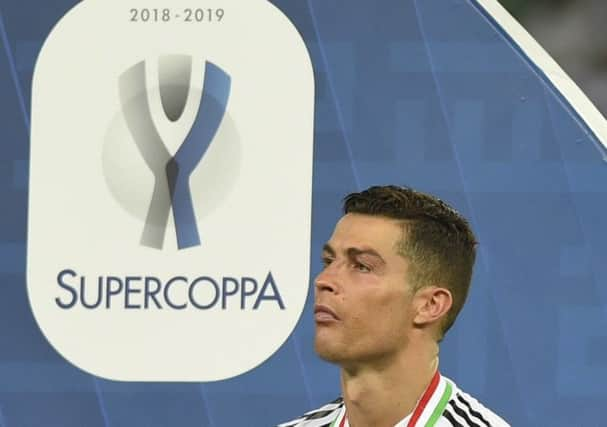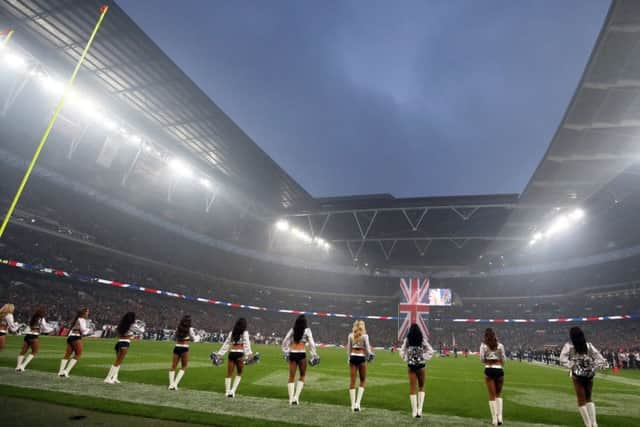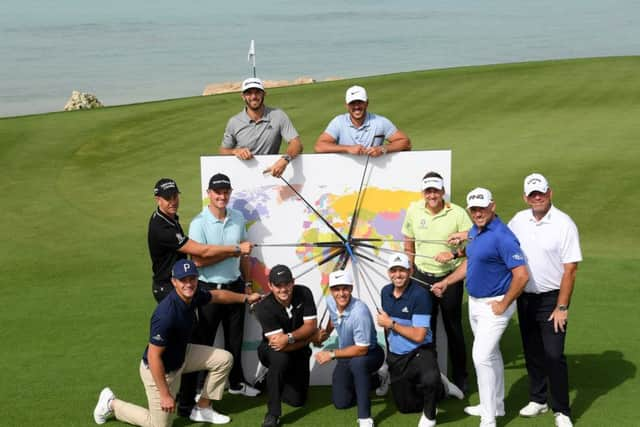Ricky Charlesworth: Question of ethics set to dominate as sport goes global


After all, Ronaldo has made a habit of registering himself on the scoresheet throughout his goal-swollen career and has continued that trend since his arrival at Juventus from Real Madrid.
But close observers of the Italian game will have perhaps taken umbrage at the location of the annual fixture.
Advertisement
Hide AdAdvertisement
Hide AdAfter all, the game, which pits the defending Serie A champions against the Italian Cup holders, did not take place in Italy but nearly 3,000 miles away in the Kingdom of Saudi Arabia.


The setting of the 62,000-seater King Abdullah Sports City stadium in Jeddah is about as far away from the hostile atmospheres of Turin or the San Siro as it gets.
However, this is just the latest example of not just football, but top-level sport in general, becoming a globalised product and trying its hand in different, previously untapped markets.
The proliferation of top-level sport in Europe and North America has led to teams branching out and visiting countries not just for exhibition games but for competitive encounters.
Advertisement
Hide AdAdvertisement
Hide AdSimon Chadwick, professor of sports enterprise at Salford University Business School, says that globalisation is finally being felt in sport after affecting most other industries.


“This is life,” so says professor Chadwick. “For example, when you go to an out-of-town retail development, it’s not all British companies selling British goods.
“There’s French companies, German companies and Japanese companies.
“In all those industries and all other aspects of our consumption, globalisation has already taken place.
Advertisement
Hide AdAdvertisement
Hide Ad“Whereas in sport, by and large we still support local sports teams and consume our football locally. Even if we don’t consume locally, it’s still by and large British teams.
“I think sport is in the midst of globalisation in the same way as other sectors before it. Globalisation has impacted upon sport, for sure.
“There’s always been an international appetite for football and people around the world for decades, if not centuries, have kicked a ball around and that unites us in many ways.
“That helps because you’re already talking a common knowledge. It costs an awful lot of money to sign a player, such as Neymar at PSG. Clubs have to make that money somewhere. There is a sense that overseas markets can deliver revenues.
Advertisement
Hide AdAdvertisement
Hide Ad“Some of those markets are in countries that are recording phenomenal growth rates. Another example is a Formula 1 race that will be taking place in Vietnam in 2020.
“The average growth rate in Vietnam over the past two years has been between six and seven per cent – in UK the average has been 1.5 or 1.6 per cent. Britain, Germany and France are no longer the safe bets that they once were.
“Therefore, Italian football and Formula 1 and NBA (basketball) are looking to China, Qatar and Saudi Arabia as a way of making money, doing business and also helping cover their costs.”
As well as football, other sports have been quick to embrace the concept of touring around the world to not only market their sport but also win a legion of new fans.
Advertisement
Hide AdAdvertisement
Hide AdThe National Basketball Association (NBA) has had regular-season games in Japan, Mexico and at London’s O2 Arena.
The National Football League (NFL) has matches every year in London and has also staged games in Mexico.
Professor Chadwick believes that the NBA in particular has been ahead of the game for some time after it first ventured into China in 2004.
He says that football is more than capable of following suit due to the simplicity of the game itself – something that could potentially count against the likes of cricket and American football.
Advertisement
Hide AdAdvertisement
Hide AdHe said: “The NBA got to China long before Manchester United or Formula 1 got there. If anybody in sport understands a vast market like China better than anyone else, then it’s certainly the NBA.
“They set up regional offices across China 10 or 12 years ago. I think, in contrast, the NFL is incredibly slow as they have only just taken notice of China.
“The other thing about the NFL, and this is an issue for the global development of cricket, is that it’s actually quite difficult to know what’s going on.
“With all successful brands, you don’t have to explain it. This is why football and basketball have been successful – you don’t have to explain them. As a brand rule, if you have to explain what it is, then you’re already losing.”
Advertisement
Hide AdAdvertisement
Hide AdOne of the most prominent places where top-level sport has previously failed to tap into is Saudi Arabia.
However, in the past few years it has played host to the aforementioned Italian Super Cup as well as world championship boxing fights, WWE wrestling and a newly-formed prestigious golf tournament.
Of course, one of the problems that comes with heading to these previously untouched areas is the moral and ethical questions that surround it.
Only last week, there was a flashpoint when the PGA European Tour was heavily criticised for staging the inaugural Saudi International.
Advertisement
Hide AdAdvertisement
Hide AdThe event has attracted a star-studded field despite the killing of journalist Jamal Khashoggi last year in the Saudi consulate in Turkey.
Respected Golf Channel analyst Brandel Chamblee led condemnation of the tournament being staged at the Royal Greens club in King Abdullah Economic city.
Chamblee described the tournament as “a PR stunt of the regime” and said: “By participating (the players) are a ventriloquist of this abhorrent, reprehensible regime.”
Professor Chadwick believes that the difficult questions will become more and more commonplace as sports clubs and organisations continue to venture into new territories with questionable ethics.
Advertisement
Hide AdAdvertisement
Hide AdHe observed: “Essentially, we are now talking about European and North American sports organisations doing business around the world in places where the culture and view of the world is very different.
“What western sport needs to understand is that doing business with China, Saudi Arabia or Russia is going to throw up sometimes very complex challenges that many are unused to dealing with.
“What the West has not yet figured out is how they should respond. They want to be part of sport’s growth and development, but they don’t understand how to respond to these events. Over the next five to 10 years, this will be part and parcel of the industry as it grows and grows.”